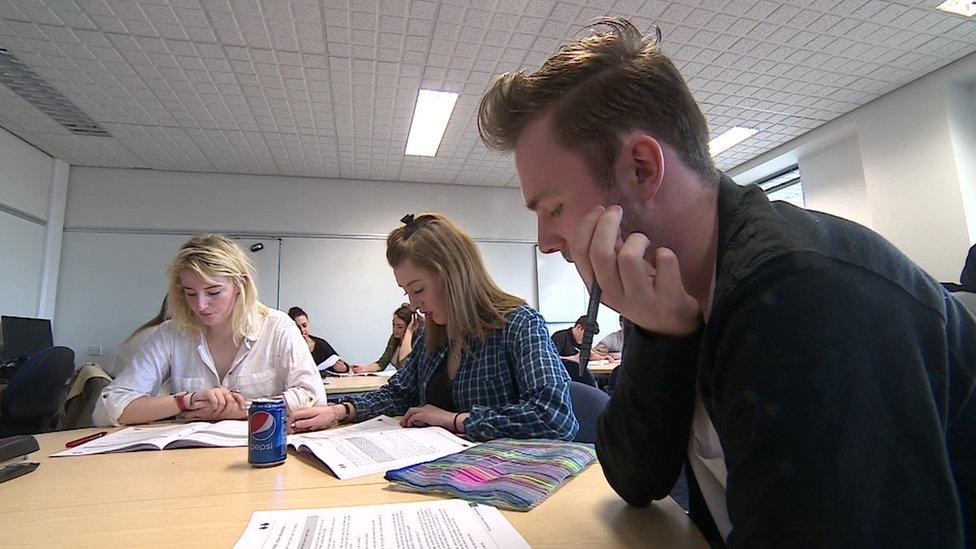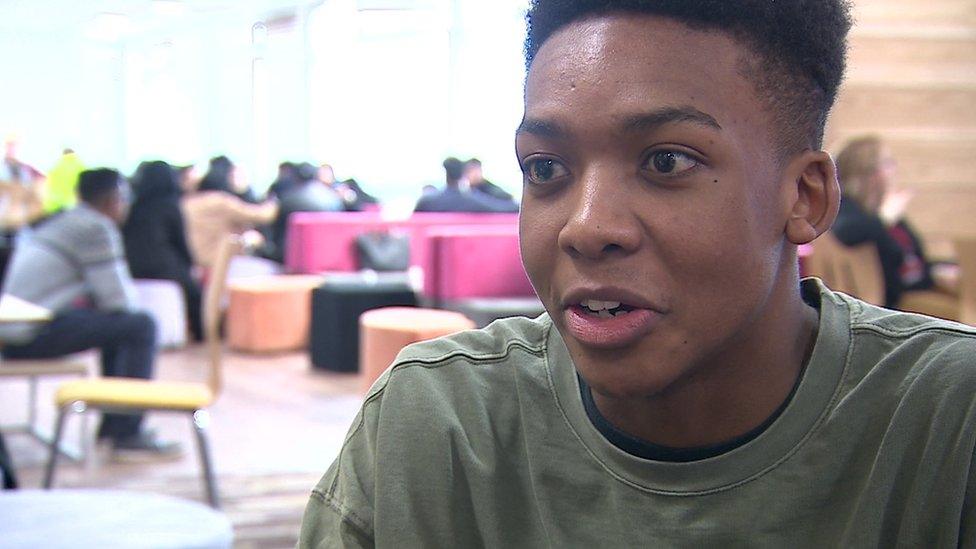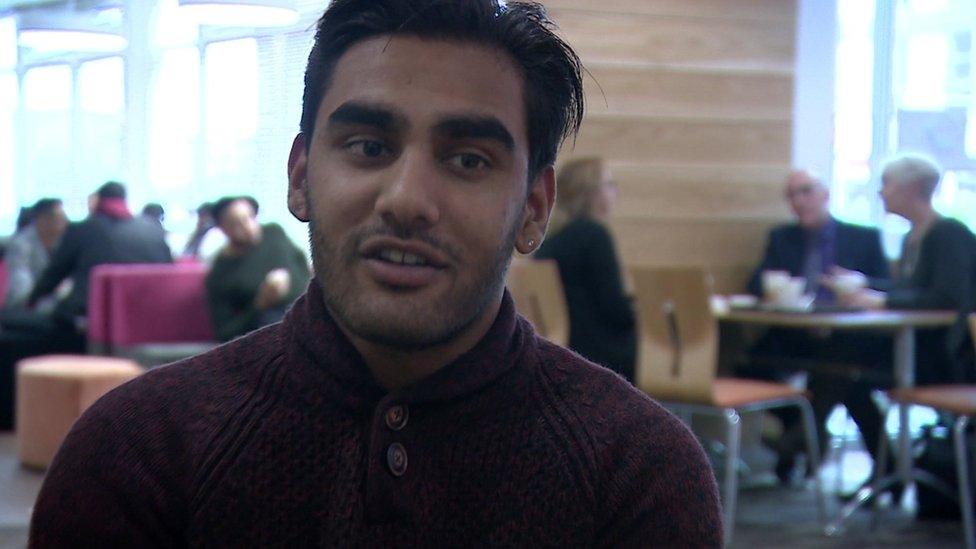The US scheme helping to drive out sexual harassment on campus
- Published
Tackling harassment: How bystander intervention works
"One hundred per cent, on a night out, there will be sexual harassment. Before I'd have been, 'That's just how it is,' but now I think it's not OK. "
Naomi Maunder didn't know anyone when she arrived at university, and felt a bit lonely and vulnerable at the start.
She didn't feel able to speak up about behaviour that made her uncomfortable.
But Naomi - a student at the University of the West of England - is one of a growing number of students who has had training called bystander intervention.
The approach is widely used on college campuses in the United States, and universities in the UK are now being advised to adopt it.
What do you think should be done? Join the conversation - find us on Facebook, external
A conference on Thursday will hear how bystander intervention is aimed at shifting attitudes about what is acceptable and normal behaviour.
It doesn't just focus on the narrow issue of sexual consent - it is intended to help students identify problematic situations, assume responsibility and intervene safely.
Students at University of the West of England (UWE) took part in a research project earlier this year, measuring whether it changed their view of different behaviours.
The research was run by Dr Rachel Fenton, associate professor of law at UWE.
It was funded by Public Health England, who wanted Dr Fenton to investigate whether you could change how people saw behaviour around them.
Judgement call
"We make a decision about whether that incident is problematic," says Dr Fenton.
"It could just be dropping litter on the floor. We see it, and we are a bystander. We can either decide to do something about it, or we can walk on by."
In a series of workshops, students are taken through a range of scenarios.
At the outset, they are asked about their own views of what is acceptable and what views are held by other people.

The UWE training is run in the form of workshops
Research suggests people consistently overestimate how many other people share problematic views, and that stops them intervening.
Bystander intervention aims to re-enforce a common set of values, sometimes known as a social norm.
A BBC investigation last year revealed that serious sexual assaults were also happening in schools.
And one of the UWE students, Teyah Hodge, tells the BBC the bystander approach should be adopted much earlier.
"I don't know why it's not part of the education system," she says.
"To base it with university students is getting the message out there., but I think we need to go younger as well."
Since a change in the law in 2013, universities in the US have had to introduce some kind of prevention training, usually based on the bystander approach.
There has been a range of research, with an evaluation of one programme, Green Dot, external, finding a reduction of 17% in all kinds of violence, compared with campuses where it wasn't being used.
In the UK, there has been a focus on whether laddish behaviour is flourishing at universities.

Student Xavier Baker says lad culture is a problem
At UWE, student Xavier Baker says there is definitely a bit of a lad culture in some parts of student life.
"I'm not part of that, but I'd like to break it down," he says.
"It's encouraged by some student society socials - where there are initiations, you're forced to drink this, do that.
"I now feel a lot more confident - as though I've got authority to do something about it."
In an attempt to tackle the growing concern about the issue of sexual violence, some universities have adopted sexual consent workshops in recent years.
But taking groups of students through the difference between "Yes," and "No," in sexual situations has been controversial.
Some have complained such sessions are patronising or leave men feeling blamed.
There was a social media backlash by some male students when they were first introduced.
Rajan Gohel, a first-year law student at UWE, says men do need to engage.
He says the bystander workshops get students to think about the impact of rape jokes in making behaviour seem more acceptable.
"At the end of the day, it's our problem as men," he says.
"I'm not saying all men are rapists, or have those sort of mindsets.
"But certainly collectively, we've got to take a stand against those men that do have those mindsets."

Rajan Gohel says men have to get involved in the debate
Unlike the US, such training is not mandatory in the UK, but a recent taskforce backed by the government recommended bystander intervention.
Dr Fenton says after many years of campaigning, the issue of sexual violence is finally being recognised.
"The reputational damage for universities is in not doing something about it - rather than pretending there isn't actually a problem," she says.
- Published21 October 2016

- Published15 September 2016
